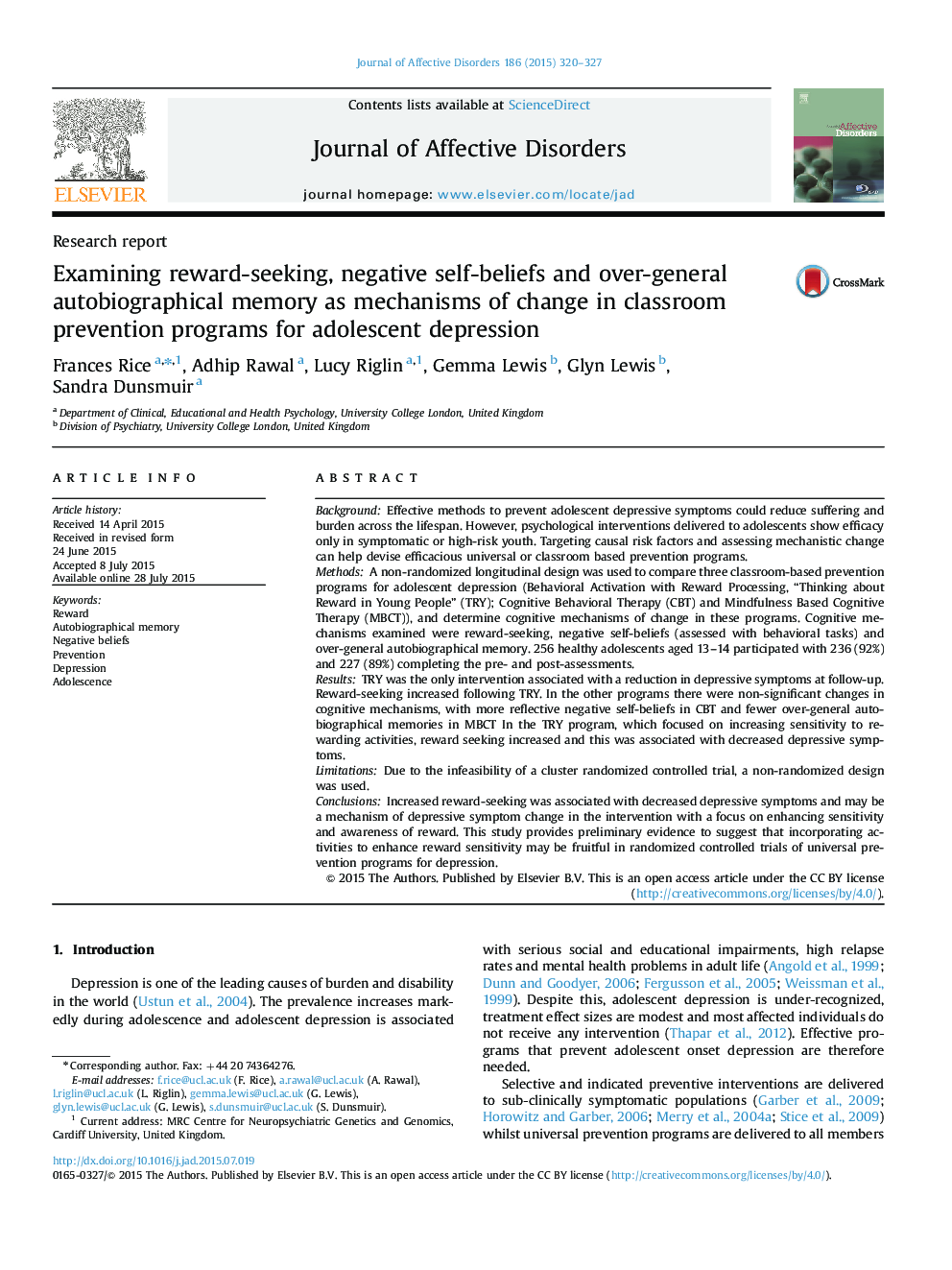| کد مقاله | کد نشریه | سال انتشار | مقاله انگلیسی | نسخه تمام متن |
|---|---|---|---|---|
| 6231210 | 1608139 | 2015 | 8 صفحه PDF | دانلود رایگان |
- We compared three classroom interventions (TRY, CBT, MCBT) and control.
- We tested if the interventions changed three cognitive risk factors.
- Reward-seeking increased after TRY and was related to a reduction in depression.
- TRY was superior to the other interventions in terms of reducing depressive symptoms.
- Incorporating reward training into universal prevention programs may be useful.
BackgroundEffective methods to prevent adolescent depressive symptoms could reduce suffering and burden across the lifespan. However, psychological interventions delivered to adolescents show efficacy only in symptomatic or high-risk youth. Targeting causal risk factors and assessing mechanistic change can help devise efficacious universal or classroom based prevention programs.MethodsA non-randomized longitudinal design was used to compare three classroom-based prevention programs for adolescent depression (Behavioral Activation with Reward Processing, “Thinking about Reward in Young People” (TRY); Cognitive Behavioral Therapy (CBT) and Mindfulness Based Cognitive Therapy (MBCT)), and determine cognitive mechanisms of change in these programs. Cognitive mechanisms examined were reward-seeking, negative self-beliefs (assessed with behavioral tasks) and over-general autobiographical memory. 256 healthy adolescents aged 13-14 participated with 236 (92%) and 227 (89%) completing the pre- and post-assessments.ResultsTRY was the only intervention associated with a reduction in depressive symptoms at follow-up. Reward-seeking increased following TRY. In the other programs there were non-significant changes in cognitive mechanisms, with more reflective negative self-beliefs in CBT and fewer over-general autobiographical memories in MBCT In the TRY program, which focused on increasing sensitivity to rewarding activities, reward seeking increased and this was associated with decreased depressive symptoms.LimitationsDue to the infeasibility of a cluster randomized controlled trial, a non-randomized design was used.ConclusionsIncreased reward-seeking was associated with decreased depressive symptoms and may be a mechanism of depressive symptom change in the intervention with a focus on enhancing sensitivity and awareness of reward. This study provides preliminary evidence to suggest that incorporating activities to enhance reward sensitivity may be fruitful in randomized controlled trials of universal prevention programs for depression.
Journal: Journal of Affective Disorders - Volume 186, 1 November 2015, Pages 320-327
